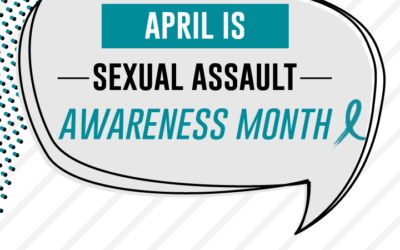Blog & Video Archives
Past Bridge Street Mental Health segment with accompanying text.
Religion , Sex and Guilt .
October is World Mental Health Month and, as such, I want to address what I regard as a neglected but, nonetheless, a significant obstacle to emotional wellness and overall mental health: erroneous guilt and shame associated with sex.
As a pastoral counselor who has helped folks deal with a wide variety of emotional issues and conflicts over the years, I have witnessed many individuals and couples with this problem. While there are multiple factors which have created this difficult experience, it is indeed ironic that traditional church attitudes and teachings about sex are largely responsible for so much of the unnecessary guilt and emotional pain experienced by so many , especially by Christian believers. To be clear, I believe that much of the problem stems from Christianity’s fundamental discomfort with and ignorance about sex.
Despite the many decades of progress made by our society in the areas of human rights and social justice, our cultural and especially religious attitudes about sex have remained mired in myth and false ideas. It is amazing to me to realize how many folks are influenced by archaic views about sex and are tormented because of them.
Frankly, the way many clerics ignore science and pervert biblical teachings about sex constitutes theological or spiritual malpractice . The extent to which they have condemned as sinful, normal sexual feelings and practices is nothing less than abusive and ethically reprehensible. Instead uplifting and promoting joy, understanding and love, many of the damning attitudes and scowling views have caused spiritual conflict and resulted in personal self-hatred and relational strife.
Fortunately, the damage done by such beliefs is not permanent and can be undone with combination of accurate information and supportive therapy. Today I want to review with you three of the most common , destructive and egregious errors found in traditional church teachings about sex:
________________________
Sex and Religion : Confessions of a Pastoral Counselor.
Okay, let’s start with a little Rorschach test. What is the first thing that comes to mind when you hear the words sex and religion ? Not so good. Certainly not like cookies and milk. They just don’t go together very well.
From its inception, Christianity has never been comfortable with the topic of sex. It is important to remember that, when Christianity arose, Roman culture ‘s decadence was at its worst. It is understandable but unfortunate, that to escape its licentiousness, the early church fathers were unable to understand the spiritual aspects of human sexuality and totally separated it from faithful devotion.
Perhaps Christianity’s failure to integrate sexuality into its theology and deal with it realistically was due in part to its expectation of Christ’s imminent return. From that point of view, things concerning the body would be of little concern. However, St. Paul’s discomfort with sex seems to go beyond that. His writings about sex and women are suspect and reveal that he was not actually comfortable with sex at all. For example, he preferred celibacy and only recommended marriage as a way to prevent sexual immorality and deal with sexual desire. (1Cor 7)
For whatever reason, subsequent leaders of the church were never able to fully embrace sexuality in a healthy way. As comedian George Carlin once quipped, the sacrament of marriage was never really able to transform something which was regarded as “dirty” or disgusting into something divine. Sex was largely appreciated for being a means to the end of creating children. (Thomas Aquinas) Little effort was spent extolling the sheer joy of the experience. Worse, church doctrine tended to take natural human curiosity and interest about sex and normal physiological impulses like masturbation, and turn them into mortal sins e.g. having impure thoughts or self-abuse. Indeed, throughout its history, the church has elevated celibacy and sexual purity as the most virtuous and godly state.
I reflect on Christianity’s negative bias against sex in the past because, I, as a pastoral counselor , see the pain caused by religiously induced guilt and shame over sex. Today, the omnipresence of sex in our culture (in advertising and through internet pornography) heightens the conflict. Without positive alternatives to offer, the traditional emphasis on sexual purity is psychologically abusive. The conservative messages are abusive because they give the impression that normal sexual impulses are evil or sinful desires.
Instead of helping folks learn to how to morally and responsibility navigate the choppy waters of the sexual environment found in modern life, the emphasis on purity simply preaches avoidance and condemnation. This attitude exposes the fundamental inability of some churches to understand that sex is not the enemy of faith . Likewise, these beliefs are oblivious to the fact that human sexuality is a vital aspect of a spiritually and psychologically healthy person.
Over the years, the physical abuse of children by clergy has been a terrible reality for many people. Beyond the physical abuse, however, it is clear that the guilt and shame created by ignorant and phobic attitudes towards sex and sexual diversity is an even more extensive and pervasive problem which has been often minimized or ignored.
Marital Journaling: How to Improve Communications between Emotionally Reactive Couples
Journaling is very big. Everyone from therapists to staff sergeants are recommending it. Likewise there are all kinds of journals. There are food, dieting, workout , writing , prayer , dream , travel, reading, gratitude , pregnancy and creative writing journals, just to name a few.
Journaling is popular for a very good reason. It is a very helpful and effective way to clarify , organize and focus one’s thoughts as well as to ventilate and expel intense emotion which can cloud or distort thinking. Best of all , this age old practice can be done by anyone no matter your age , level of education or economic status.
In addition to individual journaling, there is another type of journaling which does not get as much attention as it deserves which can be a very important tool for couples who are having trouble with communicating with each other. It is called marital journaling (MJ). With MJ, partners share one journal and take turns messaging and responding to one another by writing in the diary-like volume that they share.
Writing messages is useful because, rather than speaking face-to-face, it has been found to be a less provocative way for highly reactive couples to “talk” constructively about issues which they disagree. MJ is an effective alternative to face- to-face talking for couples who frequently argue and are frustrated because areas of disagreement go unresolved . Indeed, for couples whose attempts to negotiate bog down into personal attacks, taking turns composing reasonably thought out messages in a journal can provide immediate relief which leads to greater communication and understanding between the partners . Here’s how it works:
Marital journaling works because there is a lag time between each volley of comments. This space has two benefits:
Intimate Listening: The Key to Re-Building Marital Trust After Betrayal.
Certainly one of the most important qualities in a successful marriage is trust. However, when it is broken by dishonesty or betrayal, the emotional damage is so serious that the very survival of the union is uncertain. As a therapist, one of the most commonly asked questions by those seeking marriage or couples counseling is , “Can trust be regained ? “ and “ Can the injuries caused by the breach ever really heal ? “ Often, underlying these questions is a sense of hopelessness and the belief that a broken trust can never be repaired.
While the challenge of rebuilding trust is not easy or simple, forty years of experience in dealing with issues like infidelity has taught me that there is hope and that restoring a durable trust is possible if couples are able and willing to make the effort and to make some basic changes in their relationship.
Conceptually, what is needed for trust to be regained is emotional reassurance i.e. confidence and certainty that you can count on your partner when s/he is most needed. Betrayals like affairs or secretive financial activities are so devastating to trust because they draw into serious or complete doubt how well one knows or understands who one’s partner is. Doubt about one’s mate shatters the sense of emotional security on which trust is built.
While this sounds good in theory, what, specifically, can couples do to rebuild confidence in one another? Here some tips that can restore needed trust:
The Coronavirus Blues and Our Obsolete Notions of Retirement.
The full impact of the COVID-19 pandemic may not be known for years but, already, one of the unexpected effects that the virus has had on those who have been forced to shelter-in-place or to work from home has been to stir up anxiety about retirement.
Retirement ? Hang on. Let me explain. More than one client has expressed similar difficulties which initially involved work restrictions necessitated by coronavirus but ultimately were rooted in a deeper anxiety caused by an outdated notion of retirement.
Unfortunately, even though major progress has been made in terms of medical care and life-expectancy, our image of what modern retirement can be like lags seriously behind what it has become.
Having realistic expectations about retirement in the 21st century is crucial both to prevent dread and to make the transition successfully.
If you have been anxious thinking about retirement, here are some important facts to consider that may change your understanding of what retirement will involve. To help, here is a summary of a case which illustrates the problem.
Some Thoughts about Love , Addiction and Obsession.
Today I want to talk about a common problem which is, unfortunately, unnecessarily experienced by many folks: being “in love” with an abusive or unloving partner. A common misunderstanding present in these kind of destructive situations is a fundamental confusion about the meaning of love, i.e. where sexual thrills or emotional dependency is mistaken for a mature caring and devotion.
In working with individuals and couples for over 40 years, I have heard the word love used in many ways. Indeed, the Greeks had difference words to capture the many shades of meaning this English word can express.
When it comes to relationships, however, I have frequently observed a confusion between eros and agape or between mania and agape. You really can’t blame folks for being confused. To be honest, American notions of love and romance are a mess. They mush together a mixture of selfish and selfless personal experiences. For example, to be in love may mean feeling a powerfully exciting sexual sensation which is aroused by the person with whom one is in love or it may mean a deep and selfless concern for the wellbeing of the person that one loves. Confusing the two can be problematic. When a person thinks that s/he is in love in a mature way but in fact is primarily attracted to a thrilling sensation, or emotionally/literally is dependent on another person, good judgment is corrupted. Here is how to understand the differences.
Modern science has revealed the neurochemical components of Eros . Eros, which is sometimes falsely
The Surprising Benefits of Adding More Water to your Diet !
One of the fundamental assumptions of psychotherapy is that, emotionally, we often confuse one thing for another. For example, a man has problems with his boss and then comes home and takes his anger out on his dog or his wife. That phenomenon is called displacement. Another example is when a person is feeling depressed and so they drink too much to numb the pain. That is called self-medicating the symptom. To effectively resolve hidden issues like anger or depression, the underlying problem must be identified and directly addressed. In these examples, the real issues, the conflict with one’s boss or the source of the person’s depression must be recognized and treated.
Sometimes behavioral problems are assumed to have psychological causes when, in fact, they may also stem from or at least involve medical ones. Overlooking physiological dimensions is sometimes the case with “stress” eating or having difficulties sticking to a diet to lose weight. Research has found that sometimes we confuse preliminary dehydration with feelings of hunger. Sometimes over-eating is associated with stress and anxiety when, in fact, it also is a sign that the body is saying that it needs more water. https://www.health.com/weight-loss/11-reasons-youre-always-hungry . If exclusively psychologically-focused efforts to help you stop over-eating or to lose weight have failed , you may want to consider dehydration as a complicating factor. Here is my personal story:
A while back I
We Need Compassion Now More Than Ever: Four Steps to Increasing Empathy
Given the heightened level of tension and polarization present in today’s world, empathy is, ironically, the thing which is most needed and in the shortest supply.
Empathy is defined as the ability to understand and care about the feelings of another. It is feeling compassion for someone else. Although neuroscience estimates that 98% of people have the neural capacity for empathy , the current level of societal anger generated by both the hardships imposed by the coronavirus crisis and racial unrest toward police reveals that many folks are not feeling or expressing it. Instead of understanding and compassion, fear and mistrust are keeping us from uniting together against the common threats of Covid-19 and racism.
Apart from the larger cultural and political unrest, empathy is a key ingredient needed in everyday life to help partners , families, friends and colleagues, to get along better and reduce conflicts. The ability to put ourselves in another person’s shoes and experience and discover how another person has many of the same hopes and fears that we do goes a long way towards overcoming mistrust and hostility. Here are four simple steps to help you improve your understanding of and increase your caring about others:
COVID-19, Boredom and Stress Eating : 7 Tips to help prevent weight gain during the coronavirus crisis.
As restrictions caused by the coronavirus continue and the frustration they have created mount, one of the common casualties reported by many folks is unwanted weight gain. This phenomenon is especially problematic for those who are sheltered-at-home. Changes and restriction in daily customs and work routines has created situations where folks don’t know what to do with large amounts of idle and unstructured time. This over-abundance of unstructured time has resulted in boredom which has in turn has driven many folks to distract and soothe themselves with comfort foods and by binge eating. Likewise, the food’s people are likely to choose for anxiety-based eating , things which are usually loaded with sugar , simple carbs and fats, are not helpful for maintaining a stable weight. Uncontrolled stress-eating combined with reduced activity levels spell trouble for anyone trying to avoid putting one a few pounds.
You get the point. Folks whose lives are normally filled with jobs and other vigorous activities have been caught off guard by the social side effects of COVID-19. The absence of a normal routine and a lack of meaningful stimulation has resulted in people feeling bored. Uncontrolled eating has been what many have relied upon to cope with this unresolved public health crisis.
Nevertheless, it is important to understand that unhealthy weight gain is not inevitable that but preventing it will take some increased awareness and intentional effort. If you are struggling with this issue, here are seven tips to help you resist the impulse to pig-out :
Is COVID-19 Killing the Romance in your Marriage? Get Silly and Laugh !
With more and more people working at home and sheltering, due to the Covid-19 pandemic, many couples are spending additional time in physical proximity to one another. This increased togetherness has resulted in many partners taking advantage of the increased opportunity and having more sex.
Unfortunately, for other couples, the forced togetherness has exposed previously avoided problems of intimacy and romance and created some uncomfortable awkwardness.
As a clinician who helps couples have better sex lives, I see the coronavirus crisis as an excellent opportunity to address and fix an embarrassing and discouraging problem.
The good news is that the solution is really fun but doesn’t involve sex at all. The key for many couples to re-ignite the flames of passion is unlocking pent up inhibitions and learning how to get silly . Yes, that is not a typographical error. Increasing silliness in couple is good and allows passion to follow. Let me explain:
Frequently Asked Questions about Tele-Therapy .
It’s been almost two months since all counseling here in New York State has been conducted via tele-therapy , i.e. over either a telephone or a video platform.
At first, speaking with your counselor in this way may seem artificial or odd, but my experience and the experience of many others has been that, with a little practice, it becomes quite natural and normal.
While remote counseling is not new,, ( I first provided Skype style sessions for military families with deployed members almost twenty years ago), many folks don’t know much about it.
So , if you have been considering getting some counseling but have been reluctant due to this different format, here are some frequently asked questions and answers about tele-therapy to help you understand it and feel more comfortable with it.
Understanding and Overcoming the Self-Blame and Shame of Sexual Abuse
Okay , my apologies for not posting earlier about this. With all the attention given to and disruptions caused by COVID-19, I almost neglected to acknowledge that April is Sexual Assault Awareness Month.
That said , I want to address a serious two headed problem faced by many who have been sexually assaulted: Shame and Self-Blame. Too often, even after many years have passed, many folks who have experienced sexual assault as children say that, even though they “know better”, they still can’t shake the feeling deep down inside that what happened was their fault.
It is important to understand that self-recrimination is a common psychological phenomenon experienced by many who have been abused. The good news is that, once understood, individuals can break its depressing hold and free themselves from this false sense of guilt and responsibility . Let me show you how.
Lessons from Job for Families Dealing with Anger Issues while Sheltering-in-Place.
As the Covid-19 crisis drags on and the isolation restrictions take their emotional toll, how to deal with increased irritability and anger is one of the of the most commonly asked questions by many cooped-up couples and families.
For me, both as a pastoral counselor and a psychotherapist, The Bible is filled with stories which can help us in times such as these. The Old Testament book of Job offers some especially valuable guidance.
What is remarkable about Job’s anger is how it is expressed and where it is directed . Unlike most of us when we get mad, Job did not externalize or displace his frustrations onto others or God. He did not become verbally abusive or name-call nor did he blame or make excuses. What he did in perfect I-statement form, was to talk about his experience and his pain and what he wanted.
Applying this illustrative story to our situation, here are the key points to remember about Job’s model for dealing with anger and frustrations while living in cramped quarters and restricted circumstances:
NEW YORK STATE SUSPENDS ALL MEDICAL INSURANCE CO-PAYS AND DEDUCTIBLES.
In an effort to make it easier for folks to cope during these stressful times which has been created by the COVID-19 crisis, New York’s governor , Andrew Cuomo has declared that a state of emergency exists.
To ensure that folks continue to seek, to receive and to afford needed counseling ,in addition to requiring, non-face to face, tele-therapy for counseling, the state had has ordered that due to the virus crisis:
All Insurance Co-Pays and Deductibles Are Suspended until further notice.
Rev. Michael Heath, LMHC, Fellow AAPC.
https://www.dfs.ny.gov/industry_guidance/circular_letters/cl2020_06?fbclid=IwAR03srYC3Tsq18twyOLOS0bnVfCgkVyX4xtMDtSNdSc8i67TsDR1bcTr1pk
COVID -19 UPDATE : 3/23/2020
In response to the unfolding coronavirus crisis, I want to re-assure everyone that Pine Ridge will continue to provide the highest quality of psychotherapy and pastoral counseling throughout this ordeal.
In keeping with the best medical and public health recommendations, however, all therapy and counseling will be tele-therapy conducted via phone and video platforms.
If you have any questions about how to proceed during these trying and uncertain times, please call us at ( 315 380 1005 ) and I will be glad to help.
Rev. Michael Health , LMHC, Fellow AAPC 3 22 2020 .
2017
- May 31, 2017
Understanding the Parallels between Biblical and Psychological Wisdom - May 14, 2017
Aprreciating the Emotinal Complexity of Mother’s Day - May 02, 2017
Redefining Mental Health: The Struggle to be Reasonable - April 16, 2017
Easter and the Therapeutic Process: The Rest of the Story - April 02, 2017
Judgers and Perceivers - March 19, 2017
Communication Tip # 6 : Understanding the Differences between Thinkers and Feelers - March 04, 2017
Communication tip #5 : Understanding iNtuitive and Sensate Personality Differences - February 21, 2017
Communication Tip # 4: Understanding the differences between Extroverts and Introverts - February 03, 2017
Aristophanes and the Myth of Androgyne: The Soulful Meanings of Love - January 15, 2017
The Myth of “Holding on” to the Past : Neuro-science and the Grieving Process - January 02, 2017
Being Reasonable about New Year’s Resolutions:
2016
- December 17, 2016
New Research offers Hope for Resistant Depression - December 04, 2016
Bursting Some Common Myths About Pastoral Counseling - November 23, 2016
Thanksgiving: A Time for Regaining Perspective and ,for some, Conflict - November 11, 2016
Dealing With Political Grief - November 02, 2016
Explaining the Facebook Study: Turns out Cyber Friends Are Important Too - October 19, 2016
Beyond Romantic Myths: 9 Tips for Getting real about what it takes to have a great marriage - October 03, 2016
Why Mental Health Check-Ups Are a Good Idea - September 15, 2016
Appreciating the Health Benefits of Good Friends - August 31, 2016
When it comes to sex, men are Windows and women are DOS - August 14, 2016
Good News for People Who Worry about Memory Loss - August 05, 2016
The Psychology of Blaming: Learning to See the Fear Behind the Anger - July 07, 2016
Psychological Manipulation: What it is and How to deal with it. - June 21, 2016
Coping with the Absurd and the Horrifying Stories in the News - June 05, 2016
Do you have to be “crazy” to see a therapist ? - May 18, 2016
Sex in Marriage : Are You having Enough ? - May 07, 2016
Updating the Image of Psychotherapist: A Life-Tour Guide - April 29, 2016
Updating the Image of Psychotherapist: From Orthodontist to Helicopter Pilot When people think abo - April 12, 2016
Spring Cleaning for your Marriage - March 28, 2016
Some thoughts about the importance of Hope - March 16, 2016
I-Statements 101: The Keys to Expressing Anger Constructively - March 02, 2016
Understanding Leisure as an Essential Part of Self-Care - February 12, 2016
Romantic Myth # 3: Love is a Special Feeling - February 09, 2016
Romantic Myth #2 : Love Never Ends - February 06, 2016
Bursting Popular Myths about Love - January 25, 2016
How to Make a Worry List: The Importance of Emotional Triage - January 12, 2016
Want More Intimacy In Your Relationship? Try Sharing Your Dreams - January 02, 2016
The Secret to Keeping New Year’s Resolutions
2015
-
- December 21, 2015
Light and the Meaning of the Holidays - December 07, 2015
Dealing with Increased Terror-Related Anxiety - November 20, 2015
Dealing with the stress of Holiday Gatherings - November 10, 2015
Are You An IMpatient Person ? - October 27, 2015
How Exchanging Marital Report Cards Can Improve Your Relationship - October 07, 2015
October is Domestic Violence Awareness Month - September 21, 2015
Understanding the new “Female” Viagra - September 12, 2015
Talking about end of life issues and facing our fears of dying - August 24, 2015
Bursting the Forgiveness Myth - August 13, 2015
Understainding our False Guilt about Sex - August 02, 2015
Do you know your “Organ of Distress”: Recognizing when an emotional fire is about to break out. - July 20, 2015
How to Build Trust After an Affair . - July 05, 2015
The “Emotinal Cigarette” – A breathing exercise to help you relax. - May 18, 2016
Sex in Marriage : Are You having Enough ? - June 24, 2015
Good News for Work Outs - June 15, 2015
Sneaky Depression Triggers - June 03, 2015
Human Sexuality Is More Complicated Than You Think. - May 28, 2015
Mental Health Myth # 4: Talking to friends is the same thing as going to therapy. - May 28, 2015
Myth # 3: Psychological disorders are very rare - May 06, 2015
The Myth of Mental Illness: 2.0 - May 03, 2015
Did you know that May in Mental Health Awareness Month ? - April 25, 2015
Bruce Jenner Interview Outshines Olympic Gold - April 10, 2015
White House Supports Ban on “Conversion Therapy” for Gay and Transgender Youth - April 03, 2015
Sexism in FDA: Continues a Double Standard, Hurts Women - March 16, 2015
Taking Your Emotinal Pulse - March 05, 2015
Your Emotional Docimeter
- December 21, 2015
Rekindling Passion: Part Two – The Secret to Re-igniting the Fames of Desire
-
- January 30, 2015
Rekindling Passion: Part One – The Truth about Aphrodisiacs - January 14, 2015
Emotional Triage and the Worry List - January 06, 2015
A Check-List Before Making Your New Year’s Resolutions
- January 30, 2015
2014
- December 10, 2014
Reducing Stress Around the Holidays - November 23, 2014
Feeling Grattitude When Times Are Hard - November 07, 2014
Reducing Stress for Seniors : Tips for Dealing with Everyday Worries and Finding More Joy in LIfe - October 27, 2014
Five Things You Didn’t Know About Halloween - October 14, 2014
Having Good Sex is a Sign of a Healthy Marriage - September 30, 2014
New “Consent” App Asks Partners Important Questions to Think About Before Having Sex - September 09, 2014
Lame Excuses – Why we make them. How to stop. - August 13, 2014
Robin Williams’ Severe Depression: Keeping Things in Perspective - July 16, 2014
The Quiet Crisis: Adult Children Caring for Aging Parents - June 18, 2014
Clearing up the confusion about Transgendered People and Gender Non-Conformity: Getting the medical - May 21, 2014
Getting Rid of Grudges: Just let it go – or maybe not. - April 16, 2014
Finding Romance among the Diapers - March 26, 2014
Bursting the “Hard Work” Myth”: The Importance of Leisure - February 12, 2014
Wedding Insurance and Pre-Marital Counseling :Bursting the Obligation Myth. - January 15, 2014
Submissiveness and Leadershipin the Modern Marriage
2013
- December 23, 2013
Reducing Stress Around the Holidays – A Pastoral Counseling Approach - December 18, 2013
Balancing Career and Family - November 19, 2013
Dating Younger: How the internet and social media have expanded dating choices for single people - October 30, 2013
Five Things You Didn’t Know About Halloween - October 09, 2013
Are You Bing Bullied in the Workplace ? - September 04, 2013
Are You Addicted to the Internet ? - August 14, 2013
Post-Partum Depression: What every expectant or new mom needs to know. - July 31, 2013
Secrets of Assertiveness 101: - July 08, 2013
Sex Education for Adults: Cheating - June 17, 2013
PTSD Awareness - June 05, 2013
Leaving the Nest – Vaulable Tips for Parents and Young Adults - May 22, 2013
Five Mental Health Myths - May 08, 2013
A Spring Cleaning for Your Marriage: Personal Appearance - April 17, 2013
Dealing with the Boston Marathon Bombings? - March 28, 2013
“Breaking up” with your Hairdresser - March 13, 2013
Is This ( am I ) Normal - February 27, 2013
Romantic Second Chances: When should I give him (her) another chance? - February 13, 2013
Caring and Consideration: The Keys to Lasting Passion - January 17, 2013
Emotional First Aid: Tips for Responding to Everyday Psychological Distress - January 02, 2013
New Year’s Resolutions: Why We Brake Them, How To Keep The,
2012
-
- December 19, 2012
Take Controle of your Holiday Stress - December 03, 2012
Life Smarts and The Intelligence Myths
- December 19, 2012
- October 30, 2012
Here’s the Skinny on Scary: The Facts about Phobias - October 19, 2012
Oh, I Remember it well … or maybe not ! - September 26, 2012
The Importance of Remembering - September 05, 2012
Going Back to School Chaos: Help for Parents - August 17, 2012
Money Conflicts and Marriage: Tips for Keeping the Peace - July 30, 2012
Using Your Imagination to Overcome Procrastination - July 23, 2012
UPreventing Tragic Story Overload in the Wake of the Colorado Massacre - July 09, 2012
Redefining Normal: An Inclusive Way of Understanding Mental Health - June 27, 2012
PTSD National Awareness Day : Myths and Facts - June 20, 2012
Reducing Stress When You Travel - May 30, 2012
How to Cope with an Unreasonable Boss - May 16, 2012
How to Disagree without Being Disagreeable - May 14, 2012
Myths and facts about happiness: What really makes us happy ? - April 25, 2012
Body Language: Our Emotional Traffic Lights - April 04, 2012
The Importance of Work Place Colleagues - March 14, 2012
Stress and Relationships - February 29, 2012
Is It Love or Chemistry ? Tips for knowing when real love comes along. - February 13, 2012
Can Love and Romance Last ? Yes, But It Takes Work ! - January 18, 2012
Why am I so Impatient ? Tips for Dealing with the New Technologies that are Driving us Crazy./a> - January 04, 2012
The Psychology of Successful Weight Loss — Tips for Avoiding the Emotional Pitfalls which Sabotage
2011
- December 23, 2011
Are You Emotionally Out of Shape ? Here’s a Check List to Help You Become Emotinally Fit - December 07, 2011
Don’t be So Defensive – Tips for Dealing with Criticism Gracefully - November 23, 2011
Feeling Gratitude in the Wake of Hard Times - November 08, 2011
The Truth about Secrets and Itimacy in Marriage - October 26, 2011
How to Have A Constructive Argument - October 12, 2011
The Psychological Cigarette – Understanding the Breathing/Relaxation Connection - October 03, 2011
Am I OCD or just really particular ? - September 12, 2011
The 411 about Marriage Counseling – What it Can and Can’t do. - August 09, 2011
Psychology and Smart Phones: The Risks of Overusing your PocketPC - August 01, 2011
The Art of Compromise: Keys to Successful Marital Negotiation - July 20, 2011
Planning your wedding ? Don’t forget your relationship: the Essentials - July 05, 2011
Creating 2nd Chances: Tips for Turning a Bad Situation into a Good One - June 08, 2011
The Seven Year Itch: Why it Happens and How to Prevent i - May 25, 2011
Fair Fighting – Some Ground Rules for Resolving Marital Conflicts - May 11, 2011
Unnecessary Criticism: Why we do it ; How to stop it - April 27, 2011
Money Conflicts in Marriage: It’s not just about the Money - April 13, 2011
Spring Cleaning Your Marriage: Personal Appearance - April 01, 2011
Understanding and Coping with Jealousy in Marriage - March 16, 2011
Therapeutic Self-Talk: What it is, Why it’s Helpful and How it Works . - March 09, 2011
Breaking the Ice After an Argument: Understanding the Psychology of Post Argument Silences - February 23, 2011
Guilt-Tripping and Emotional Manipulation No one likes to be guilt-tripped, yet it happens all - February 14, 2011
The Secret of Keeping Romance Alive: Tips for Busy Couples - January 26, 2011
Sibling Relationships 101:Tips for Updating your Sib Status - January 19, 2011
How Words Can Help Us to Heal The tragedies of the Tucson shooting has created many emotional wounds - January 14, 2011
A Myth About Mourning Although most of the country was moved by the ceremony held for the victims - January 06, 2011
Boosting Your Brain: Sorting out the Facts from the Myths
2010
- December 29, 2010
End of Year Marital Review and Marital Resolutions for the New Year - July 19, 2010
Pouting - June 28, 2010
Are You Just Discouraged or Really Depressed ? How to Tell the Difference - May 25, 2010
Emotional False Alarms - May 06, 2010
The Science of Making Up - April 12, 2010
Spring Cleaning for your Marriage
2009
- December 07, 2009
Marital Make-Overs for the Holidays: Tips for Fallling in Love All over Again - November 02, 2009
Marriage Is Hard - October 05, 2009
Keeping Your Cool - September 10, 2009
Nagging: Why we do It , How to Stop - July 23, 2009
Understanding Affairs - June 30, 2009
Interviewing Successfully - June 01, 2009
Helping our Parents with Difficult Decisions - March 09, 2009
The Good News About Stress - February 19, 2009
Talking to Teens about Sex
















